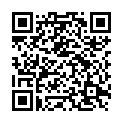|
|
|
| Module code: MAB_19_PE_5.12.DPE |
|
|
2PA+1S (3 hours per week) |
|
3 |
| Semester: 5 |
| Mandatory course: yes |
Language of instruction:
German/English |
Assessment:
Assessment methods:
P241-0239 - Project work: written documentation in German
P241-0240 - About the project work: abstract and presentation in English, 15 minutes.
[updated 29.08.2025]
|
MAB_19_PE_5.12.DPE (P241-0239, P241-0240) Mechanical and Process Engineering, Bachelor, ASPO 01.10.2019
, semester 5, mandatory course, Specialization Product Development
|
45 class hours (= 33.75 clock hours) over a 15-week period.
The total student study time is 90 hours (equivalent to 3 ECTS credits).
There are therefore 56.25 hours available for class preparation and follow-up work and exam preparation.
|
Recommended prerequisites (modules):
MAB_19_A_1.05.BEM Business English for Mechanical Engineers
MAB_19_A_2.06.TEM Technical English for Mechanical Engineers and Professional Presentations
MAB_19_A_3.03.AEJ Applying for an Engineering Job
[updated 12.08.2025]
|
Recommended as prerequisite for:
|
Module coordinator:
Prof. Dr. Bernd Heidemann |
Lecturer:
Sebastian Barth, M.A.
Professoren der Fakultät
[updated 12.08.2025]
|
Learning outcomes:
Learning outcomes for "Design Project":
Students will be able to develop a topic-specific, methodical approach to a technical problem in a team, work on the problem in a structured and timely manner, develop solutions, and document and present their procedure and results in a report.
Learning outcomes for "English":
The modules “Business English for Mechanical Engineers”, “Technical English for Mechanical Engineers” and “Professional Presentations”, “Applying for an Engineering Job”, as well as “Design / Manufacturing / Process Engineering Project in English” should be seen in conjunction with one another. They offer students a framework to further develop their English language skills in a professionally related area from the desired entry level B1 to level B2.
The focus of the “Design/Manufacturing/Process Engineering Project in English” module will be on the presenting project results in English and writing an English abstract for the documentation that is to be written in German.
Students will be familiar with various reading strategies and will be able to work independently on a topic using English technical texts and videos.
They will improve and deepen the presentation knowledge and skills acquired in the Technical English for Mechanical Engineers and Professional Presentations modules and be able to apply them to a final presentation of their project results in English. The main focus will be an academically educated audience, which, however, is not exclusively composed of experts on the respective topic.
Students will also be able to write an English abstract on the documentation to be prepared in German.
[updated 29.08.2025]
|
Module content:
Form a team (2 students) and contact a supervisor.
Define a technical project topic: The topic should be formulated to fit the interdisciplinary field of (product) development and design.
Developing a procedure for processing (agreeing on methodology, setting up a schedule, defining work packages, organizing the team (internal communication and information exchange with the appropriate media).
Processing is based on the methodical procedure of the general work methodology:
Clarify the task,
Research the state of the art (literature, patents, analyze comparative/reference examples, ...),
Identify and structure sub-problems,
Develop solutions for sub-problems,
Develop and evaluate concepts (= combinations of partial solutions),
Suggest, present and defend the overall solution,
Hold regular structured work meetings with your supervisor, optionally in English,
Create documentation in German,
Write abstract in English, see below.
Hold a presentation in English, see below.
The English language content will be closely related to the technical projects. Content:
- Strategies for acquiring the technical vocabulary relevant to the respective projects
- Text work with technical texts and videos relevant to the respective projects
- Repetition of the structure and language of English presentations in order to present project results
- Describing diagrams, tables, images, numbers, cause and effect correlations, and trends
- Presentation slides
- Dealing with questions and body language
- Preparing and practicing English presentations in order to present project results in front of an “educated audience”
- Introduction to abstracts (structure, style, idioms, writing strategies)
- Writing abstracts
[updated 29.08.2025]
|
Teaching methods/Media:
Supervised, coached teamwork with regular work meetings according to the schedule.
The learning goals (with regard to language competence) will be achieved through integrated training of the four basic skills (listening comprehension, reading comprehension, speaking and writing) supported by the use of multimedia. Group work and working in pairs, as well as peer review will play an important role. During the workshop-like phases, students will also have the opportunity to practice their presentations and receive appropriate feedback.
Target group-specific teaching/learning materials (print, audio, video), as well as multimedia CALL and e&mLearning materials will be used.
[updated 29.08.2025]
|
Recommended or required reading:
Literature for “Design Project” related to the keywords product development and design theory/methodology
Pahl/Beitz: Konstruktionslehre - Methoden und Anwendung erfolgreicher Produktentwicklung. Springer Vieweg, Heidelberg.
Pahl/Beitz: Engineering Design - A Systematic Approach. Springer-Verlag, London.
Ehrlenspiel, K.; Meerkamm, H.: Integrierte Produktentwicklung - Denkabläufe, Methodeneinsatz, Zusammenarbeit. Carl Hanser Verlag, München.
Recommended or required reading "English":
- Christine Sick, unter Mitarbeit von Miriam Lange: TechnoPlus English 2.0. A multimedia language learning program for technical and business English. EUROKEY.
- Christine Sick, unter Mitarbeit von Lisa Rauhoff und Miriam Wedig (seit 2016): Online
Extensions zu TechnoPlus Englisch, EUROKEY.
- Christine Sick: TechnoPlus Englisch VocabApp. EUROKEY.
- M. Ibbotson: Professional English in Use: Engineering. Technical English for Professionals. CUP.
- C. Sowton: 50 Steps to Improving Your Academic Writing. Garnet Education.
- B. Rosenberg: Spring into Technical Writing for Engineers and Scientists. Addison-Wesley.
- D. Beer, D. McMurrey: A Guide to Writing as an Engineer. Wiley.
- K. Budinsky: Engineers’ Guide to Technical Writing. ASM International.
[updated 29.08.2025]
|

